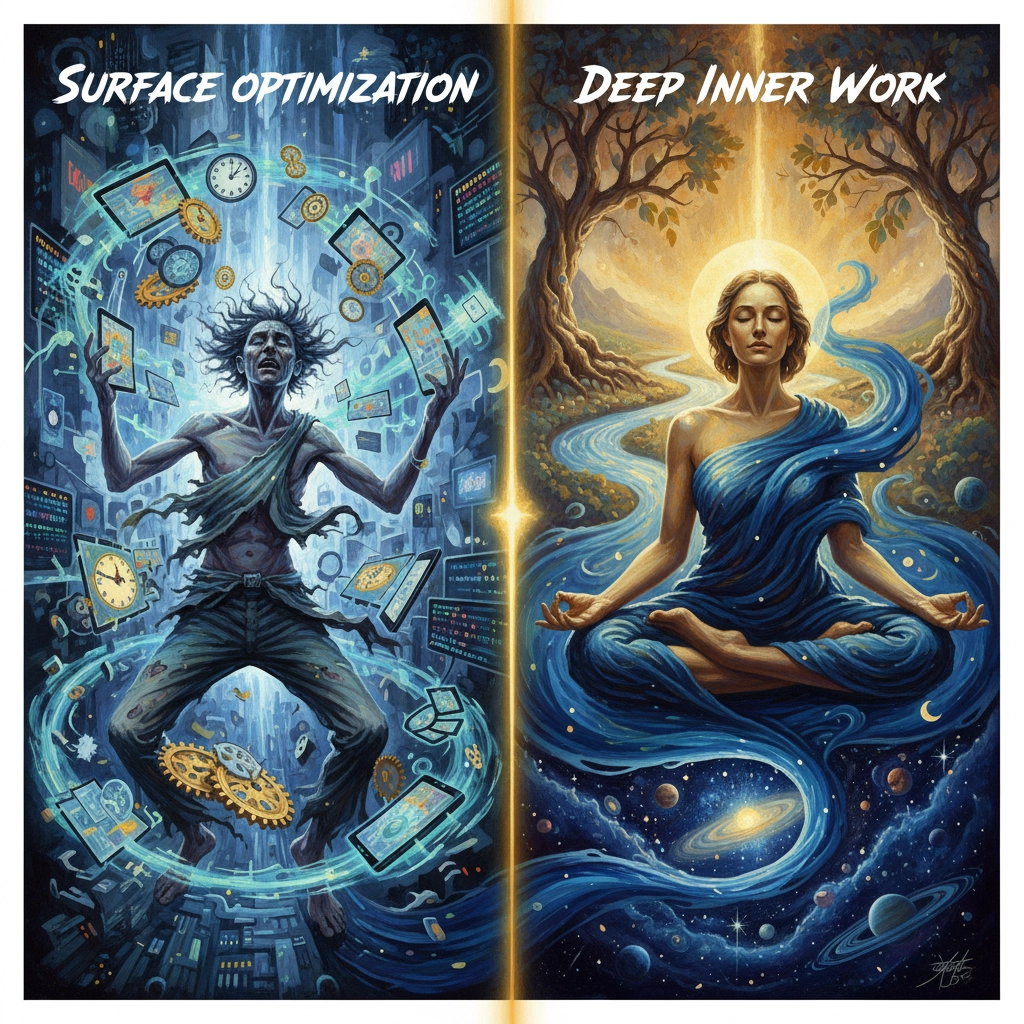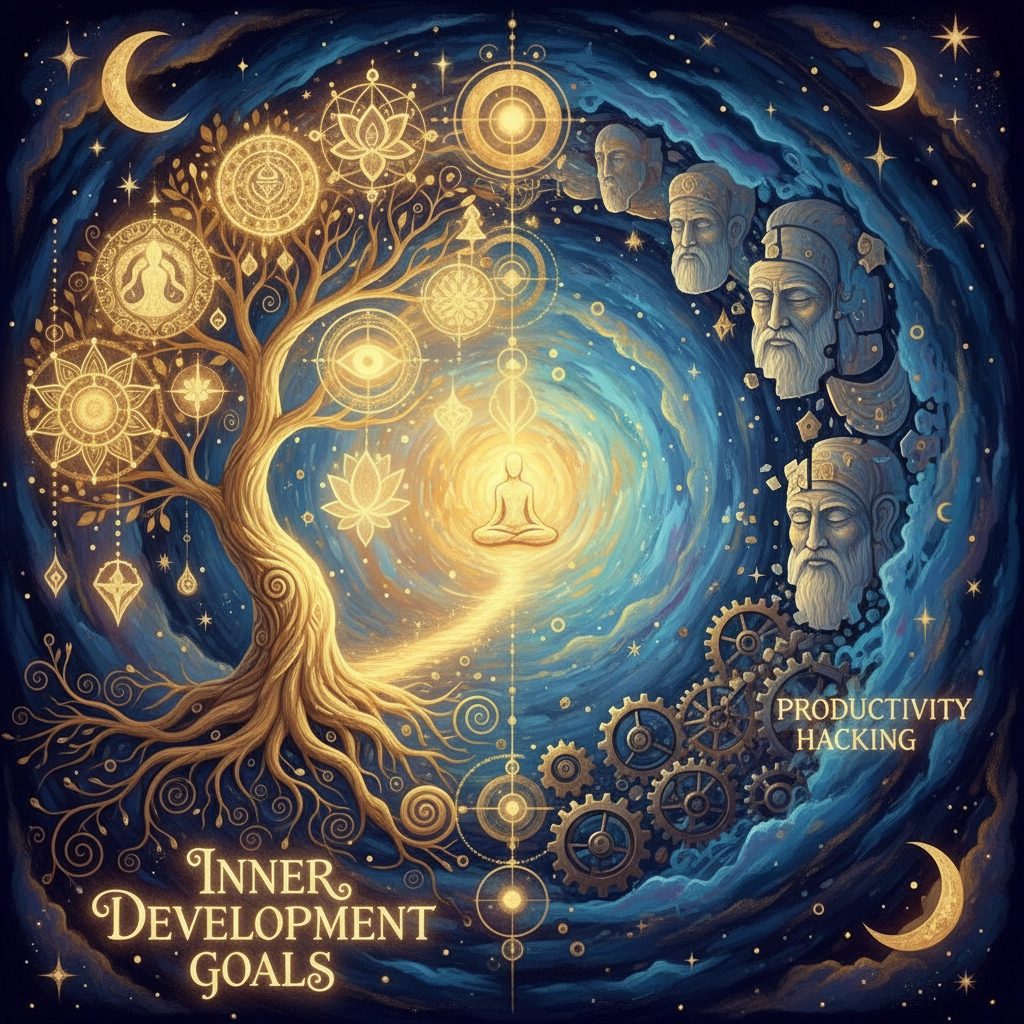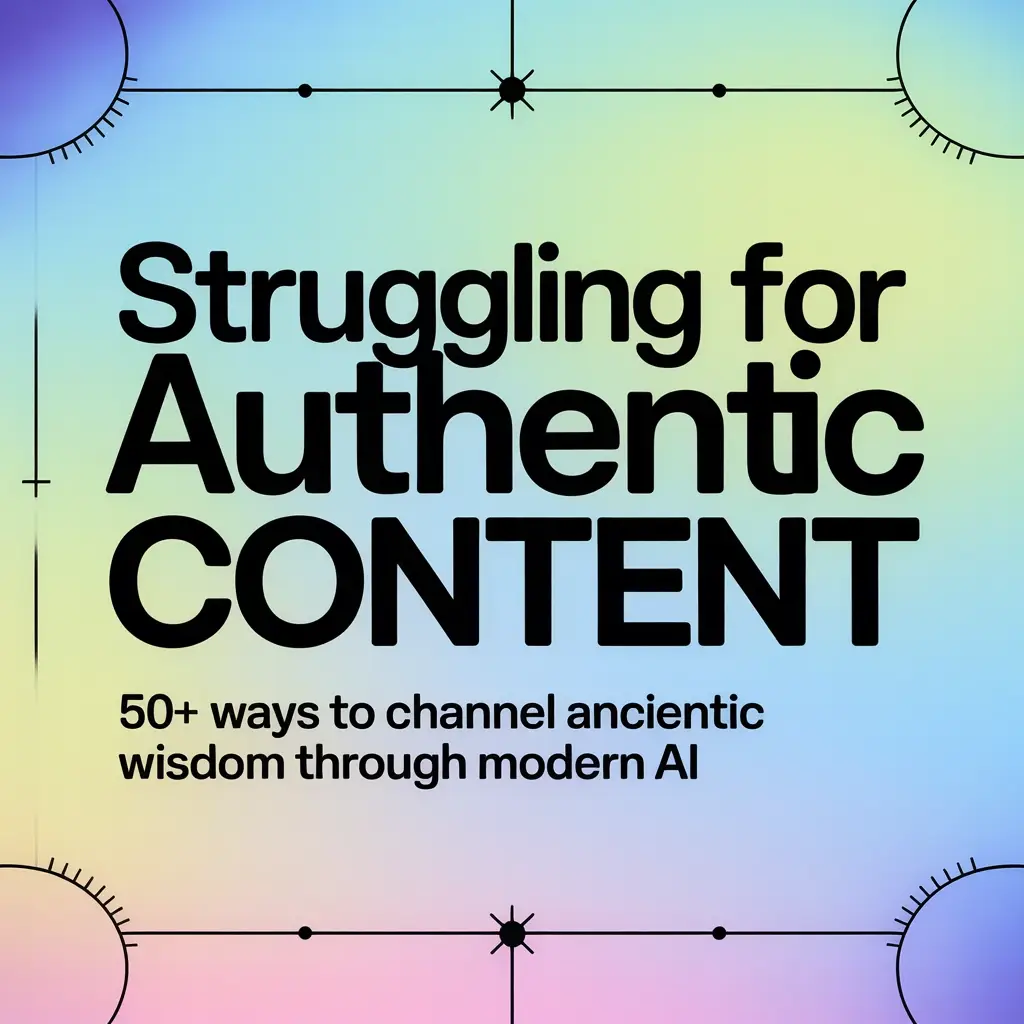The productivity industry generates billions in revenue selling systems, apps, and techniques to optimize individual output. Meanwhile, less than 20% of the UN Sustainable Development Goals remain on track for achievement by 2030. This disconnect reveals a fundamental gap between surface-level efficiency methods and the systemic transformation required for meaningful change.
The Inner Development Goals movement addresses this gap by focusing on foundational human capacities rather than tactical optimization. Understanding this distinction matters for anyone seeking sustainable progress in their work and life.
What the Inner Development Goals Framework Offers
The Inner Development Goals initiative emerged from research involving over 1,000 experts, scientists, and practitioners. The framework identifies five core dimensions with 23 specific skills for human development:
Being: Self-awareness, presence, and inner compass
Thinking: Critical thinking, complexity awareness, and perspective skills
Relating: Appreciation, connectedness, and humility
Collaborating: Communication skills, co-creation abilities, and inclusive mindset
Acting: Courage, creativity, and perseverance

This framework operates on the premise that external solutions remain inadequate without corresponding shifts in human values, understanding, and leadership capacities. The approach recognizes that inner development functions as a collective, systemic process rather than individual self-improvement.
The Productivity Hacking Approach
Productivity hacking typically involves:
- Time management techniques and scheduling systems
- Task optimization and workflow automation
- Goal-setting frameworks and tracking methods
- Efficiency tools and digital solutions
- Performance metrics and measurement systems
These methods focus on maximizing output within existing frameworks. Research indicates that inner conflict serves as the primary hidden driver of productivity and burnout issues at work, suggesting that surface-level interventions miss core underlying factors.
Key Differences in Approach
The two methodologies differ fundamentally in scope and impact:
Timeframe: Productivity hacking delivers short-term performance gains. IDG builds long-term sustainable change through capacity development.
Root Causes: Productivity techniques treat symptoms of overwhelm and inefficiency. IDG addresses underlying values and mindset patterns that create these symptoms.
Sustainability: Optimization methods often create cycles of improvement followed by burnout. IDG develops lasting transformation through integrated development.
Collective Impact: Productivity hacking remains primarily individual-focused. IDG explicitly designs for societal transformation through collective inner development.

Why Surface-Level Solutions Fall Short
Standard productivity approaches operate within existing systems and assumptions. They maximize efficiency without questioning whether current structures serve long-term well-being or collective needs.
Consider common productivity challenges:
- Information overload requiring constant filtering and prioritization
- Competing demands creating decision fatigue
- Time scarcity generating stress and rushed decisions
- Goal conflicts between personal and organizational objectives
Productivity hacking addresses these through better systems and techniques. IDG questions the underlying conditions that create these challenges in the first place.
The framework develops complexity awareness and long-term orientation – capacities that help individuals navigate interconnected systems rather than simply optimizing within them.
The Systemic Transformation Perspective
IDG explicitly states that "inner does not equal individual." This perspective shifts focus from personal optimization to developing collaborative capacities needed for shared global concerns.
The framework integrates:
- Empathy and compassion for understanding diverse perspectives
- Inclusive mindset for working across differences
- Systems thinking for recognizing interconnections
- Social awareness for understanding collective dynamics
These capacities enable transformation of the conditions that create productivity challenges rather than endless optimization within problematic systems.

Practical Applications of IDG vs Productivity Hacking
Productivity Hacking Application: Use time-blocking to manage a packed schedule with competing priorities.
IDG Application: Develop inner compass and complexity awareness to evaluate which commitments align with values and long-term impact. Build courage to say no to misaligned requests.
Productivity Hacking Application: Implement a task management system to handle information overload.
IDG Application: Cultivate critical thinking and perspective skills to discern relevant information. Develop presence to maintain clarity amid information streams.
Productivity Hacking Application: Set performance goals and track metrics for accountability.
IDG Application: Build self-awareness to understand intrinsic motivation. Develop perseverance and creativity to navigate obstacles and generate original solutions.
The Collective Benefits
Individual productivity optimization rarely addresses systemic issues that affect entire organizations and communities. IDG develops capacities for co-creation and mobilization that enable collaborative problem-solving.
The framework's emphasis on appreciation and connectedness builds social capital necessary for sustained collective action. Humility and inclusive mindset create conditions for learning across differences and integrating diverse perspectives.
These capacities matter increasingly as challenges require coordination across organizations, sectors, and cultures.

Integration Rather Than Replacement
IDG does not eliminate the need for effective systems and techniques. Rather, it provides the foundation for discerning which methods serve authentic development versus mere optimization.
Individuals with developed inner compass and complexity awareness can evaluate productivity techniques based on alignment with values and long-term impact rather than immediate efficiency gains.
Critical thinking and perspective skills enable assessment of whether optimization serves sustainable well-being or perpetuates unsustainable patterns.
Moving Beyond Individual Optimization
The productivity industry assumes that individual efficiency leads to collective progress. IDG research suggests this assumption oversimplifies complex systemic challenges.
Developing social awareness and systems thinking reveals how individual productivity optimization can inadvertently contribute to collective problems – such as competitive dynamics that undermine collaboration or speed that sacrifices quality relationships.
The framework builds capacities for communication skills and trust that enable coordination without sacrificing individual effectiveness.
Implementation Considerations
Organizations and individuals can begin integrating IDG principles through:
- Regular reflection on values and long-term impact rather than immediate output
- Developing listening skills and empathy in collaborative work
- Practicing systems thinking to understand interconnections
- Building capacity for uncertainty and complexity rather than seeking simple solutions
- Cultivating presence and self-awareness alongside task management
These practices complement rather than replace effective techniques while addressing underlying patterns that create recurring challenges.
The Inner Development Goals movement offers a framework for sustainable transformation that addresses root causes rather than symptoms. While productivity hacking optimizes within existing systems, IDG develops the capacities needed to transform those systems entirely.
This distinction matters as individual and collective challenges require more than efficient execution – they demand the wisdom, empathy, and collaborative skills to create genuinely sustainable solutions.



